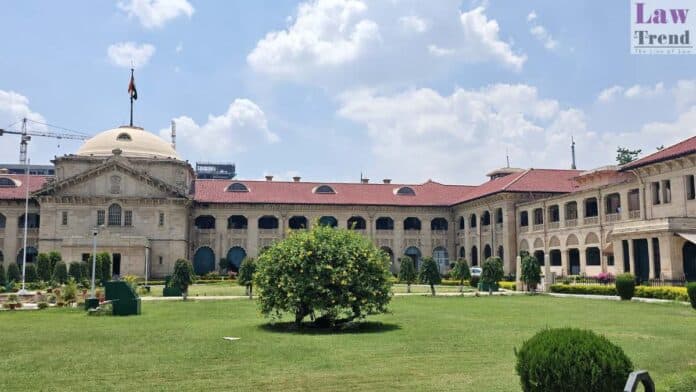The Allahabad High Court has dismissed an application seeking the impleadment of Goddess Radha as a party in one of the 18 pending suits concerning the Krishna Janmabhoomi–Shahi Idgah land dispute in Mathura. The court held that references to Goddess Radha in Puranic texts were not sufficient legal grounds for impleadment in the civil suit.
Justice Ram Manohar Narayan Mishra, in his order, stated, “Pauranic illustrations are considered hearsay evidence… based on narrative and not on direct observation or testimony.” The application had been filed by Advocate Reena N Singh on behalf of “Shriji Radha Rani,” claiming her status as the legal wife and feminine counterpart of the principal plaintiff deity, Sri Bhagwan Krishna Lala Virajman.
The applicant contended that Goddess Radha should be considered a joint owner of the 13.37 acres of disputed land—on which the Shahi Idgah mosque currently stands—based on religious texts including the Puranas and Sanhitas. It was argued that the impleadment was necessary to secure complete justice under Order I Rule 10 of the Civil Procedure Code.
Rejecting the plea, the court observed that there was no specific averment or evidence in the application indicating that a temple of Radha Rani ever existed on the disputed site. It noted, “The applicant is neither a necessary nor a proper party to the suit.”
The court, however, left the door open for the future, stating that if credible and concrete evidence is presented to establish a claim of joint ownership, such an impleadment request could be reconsidered.
The broader litigation pertains to the alleged encroachment of Lord Krishna’s birthplace by the Shahi Idgah Masjid, which, according to the plaintiffs, was built over the site of an ancient temple destroyed during the reign of Mughal emperor Aurangzeb in 1669–70. The plaintiffs seek the removal of the mosque from the site they assert to be Krishna Janmasthan.
The High Court’s order reinforces the need for legally admissible evidence in sensitive religious property disputes, even when involving deified entities, and marks a significant development in the ongoing Mathura title litigation.




